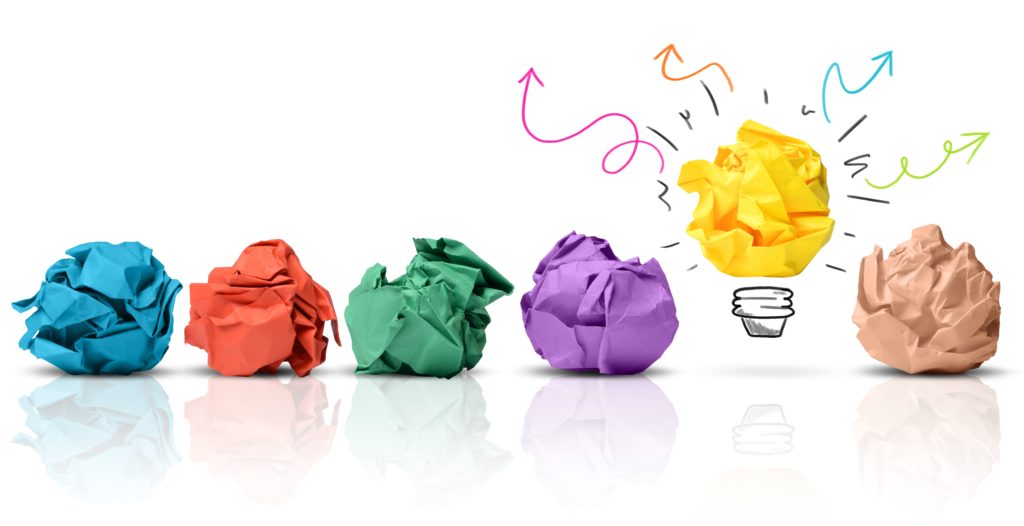Quick Hits
Daily brief research updates from the cognitive sciences

Can you learn creativity? Well, you can learn anything, and you can certainly learn to be more creative. But the big question is do those people high in creativity have brains that function differently? There has been a bunch of research that has promoted this idea that those high in creativity do have brains that function differently but there is still a lot to learn.
To help answer this question researchers at UCLA put exceptionally creative visual artists and scientists, known as “Big C” types (selected by a panel of experts and objective criteria) – into brain scanners to try to see what was happening in their brains during creative tasks.
And what did they find?
They found that, yes, creative people do use their brains differently and in an interesting way. When the brain processes information and engages in tasks the brain tends to send all signals through standard pathways and these are connected through various “hubs” such as a region called the thalamus. However, in creative people’s brains this seems to happen differently. They connect regions of the brains without going through these hubs.
This therefore suggests that this is an inborn process – I, for example, have no idea how to connect ideas without using my thalamus!
But this piece of research was also interesting because they compared different population groups specifically visual arts and sciences but also compared this to an IQ-matched comparison group to make sure this is not just a signature of intelligence. And they also found something else interesting.
They found that these Big C creatives had more efficient local brain connections at rest but when they ramped up on creativity tasks, they used the pattern above using less efficient but more divergent routes. So, this shows two things that are happening in the brains of creatives. They have efficient local connections and divergent global connections and when they ramp up for creative tasks their networks use less efficient but more novel pathways. That’s precisely why they’re so creative.
So yes, anther one to show that truly creative people do have brains that operate differently – how much can be learned is another question – but this seems to show this is a fixed attribute. But that is another question for another day.
I’m just trying to figure out how to make my brain less efficient!

Andy Habermacher
Andy is author of leading brains Review, Neuroleadership, and multiple other books. He has been intensively involved in writing and research into neuroleadership and is considered one of Europe’s leading experts. He is also a well-known public speaker speaking on the brain and human behaviour.
Andy is also a masters athlete (middle distance running) and competes regularly at international competitions (and holds a few national records in his age category).
Reference
Ariana Anderson, Kevin Japardi, Kendra S. Knudsen, Susan Y. Bookheimer, Dara G. Ghahremani, Robert M. Bilder.
Big-C creativity in artists and scientists is associated with more random global but less random local fMRI functional connectivity.
Psychology of Aesthetics, Creativity, and the Arts, 2022
DOI: 10.1037/aca0000463
More Quick Hits
Coffee Makes Business Teams More Effective
Quick HitsDaily brief research updates from the cognitive sciences just couldn’t resist reviewing this piece of research, from a few years ago, after I stumbled across this (likely because some background algorithm had recommended it to me based...
Caffeine Makes You More Prone to Impulsive Buying
Quick HitsDaily brief research updates from the cognitive sciences fascinating piece of research just published shows that drinking coffee makes you more impulsive. That means you are likely to buy more, and more items you actually don’t need....
Healthy Brains Are Hotter Than You Think
Quick HitsDaily brief research updates from the cognitive sciences hen we get sick we get a fever and we all know what our body temperature should be: around 37°C. Too much above that and we have a fever, and too much below and we risk...
Unpredictable Parents Disrupt Brain Circuitry in Children
Quick HitsDaily brief research updates from the cognitive sciences ntuitively we all know that good parenting is essential to kids’ healthy development. We all agree on that. But as soon as we try to define what good parenting is we then enter into...
A New Study on Inter-Brain Synchronisation
Quick HitsDaily brief research updates from the cognitive sciences n case you didn’t know it brain synchronisation (or inter-brain synchronisation) is a thing. And a pretty cool thing. This happens when two, or more, people do similar things...
Unique Social Genes in Human Beings
Quick HitsDaily brief research updates from the cognitive sciences ne differentiating factor with human beings is our pro-sociality. This means we are a social species, and this sociality is seen in our ability to empathise, be socially tolerant,...






